To prepare runners for the Straits Times Run 2017, some talks and workshops were held recently.
One of these talks was on how to catch a heart attack before it catches you, and it was given by Dr Dinesh Nair, an interventional cardiologist at the Mount Elizabeth Hospital.

Our group of runners at ST Run clinic recently.
Heart attack can strike anyone at any age
At the session, Dr Nair stressed that heart attacks are not necessarily a phenomenon that strikes older people; in fact, a lot of people in their 20s get heart attacks too. He said, “I tell people that once they are in their teens, they need to get their heart checked. You can get heart issues at any age. Sudden death can occur to anyone at any time.”
To illustrate his point, Dr Nair pointed out some recent cases of young athletes suffering from sudden cardiac death during sports. These include then 29 year old John Gibson, who passed away after collapsing at the 21.1km finishing line of the 2016 edition of the Standard Chartered Marathon Singapore, as well as then 17 year old Thaddeus Cheong, who passed away when he had collapsed at the finish line at the triathlon time trials for the 2007 South East Asian Games.
He added, “And during intense physical activity such as running, the risk goes up. Yet people in their 70s and 80s are still running and they are alive and well. But what many people don’t realise is that most athletes can actually be brought back when their heart stops – but that is only if they can make it to the hospital in time.”
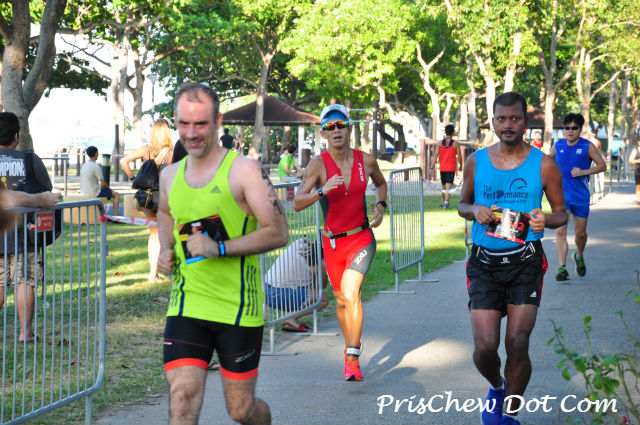
The risk of heart attack can go up during intense physical exercise.
Coronary heart disease
According to Dr Nair, about 80 per cent of sudden cardiac deaths are due to coronary heart disease, an underlying and undiagnosed heart condition where plaque builds up in the coronary arteries, causing blockages in the blood vessels – which in turn, reduces and restricts blood flow to the rest of the body.
Common causes that can lead to coronary heart disease can include smoking, diabetes, obesity, high blood pressure, stress, high cholesterol and a sedentary lifestyle.
Obstructive sleep apnea is also a common cause of sudden cardiac death; obstructive sleep apnea is a condition that is characterised by a repetitive collapse of the airways and this results in low oxygen levels and an elevated blood pressure. Symptoms include loud snoring and choking sensation when breathing at nights, as well as tiredness and poor concentration during the daytime.
Said Dr Nair, “Having this condition puts the heart under stress; so it is a signifiant cause of sudden cardiac death.”
Heart Screening
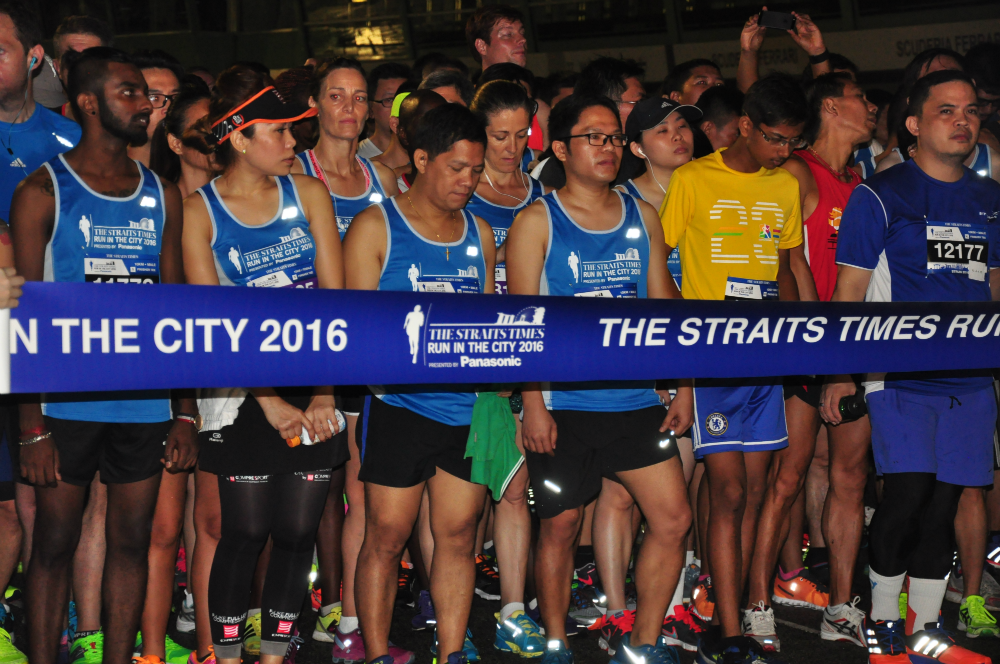
Do a heart screening and cholesterol test before you engage in physical activity..
So if you are going to engage in physical activity, Dr Nair suggest that you undergo a heart screening as well as a cholesterol test.
He said, “There are people who run marathons, they have 10 per cent body fat but their cholesterol levels are hitting through the roof. These people are highly predisposed to sudden death syndrome and if they do survive the attack, their heart will become very weak.”
There are several methods of heart screening, and these range from ECG (electrocardiogram) to a chest X-Ray and a treadmill test. Dr Nair pointed out that these all have varying levels of accuracy and reduce your risks of falling victim to sudden cardiac death, but they are not 100 per cent foolproof; so this means that your test results may be normal but there is still a possibility that you could have an underlying, undiagnosed heart condition.
Signs of an impending heart attack during running
There are some signs and symptoms that runners should look out for, to decide whether it is all right to push themselves further at a race, or whether it is better to hold back.
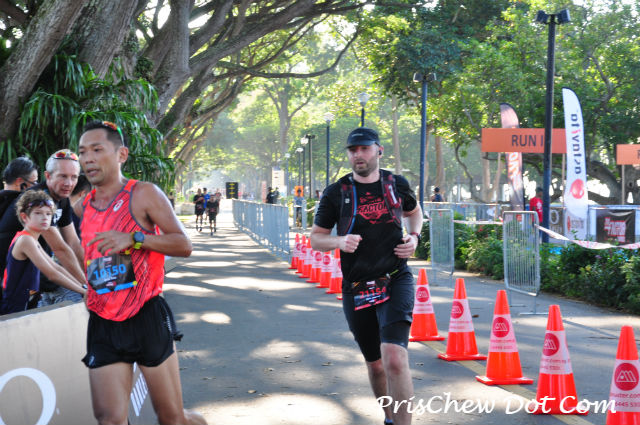
How can runners look out for a heart attack?
Said Dr Nair, “If you are running and you find yourself out of breath and not able to speak sentences, then you should slow down. The older you are, the more important this is. For trained athletes, it is one thing to push their bodies beyond their limits, but if you are getting chest tightness then you have already pushed too far.”
He added, “Also if you have not been hydrating well, you are at risk, too. And after crossing the finish line, if you just stand there, all the blood in the body pools to the legs and there is no blood going to the rest of the body; this can be quite dangerous – so you must keep on walking.”
Exercise and overtraining will damage the heart
Long periods of hard cardio training can also cause damage to the heart and negate the positive effects that exercise typically brings, especially if you overdo it, added Dr Nair. He said, “Exercise and overtraining can damage the heart and can cause inflammation and scar tissues to form in the heart. This is especially so for very long distance runners, such as ultra marathoners; this group of runners predispose themselves to heart abnormalities.”
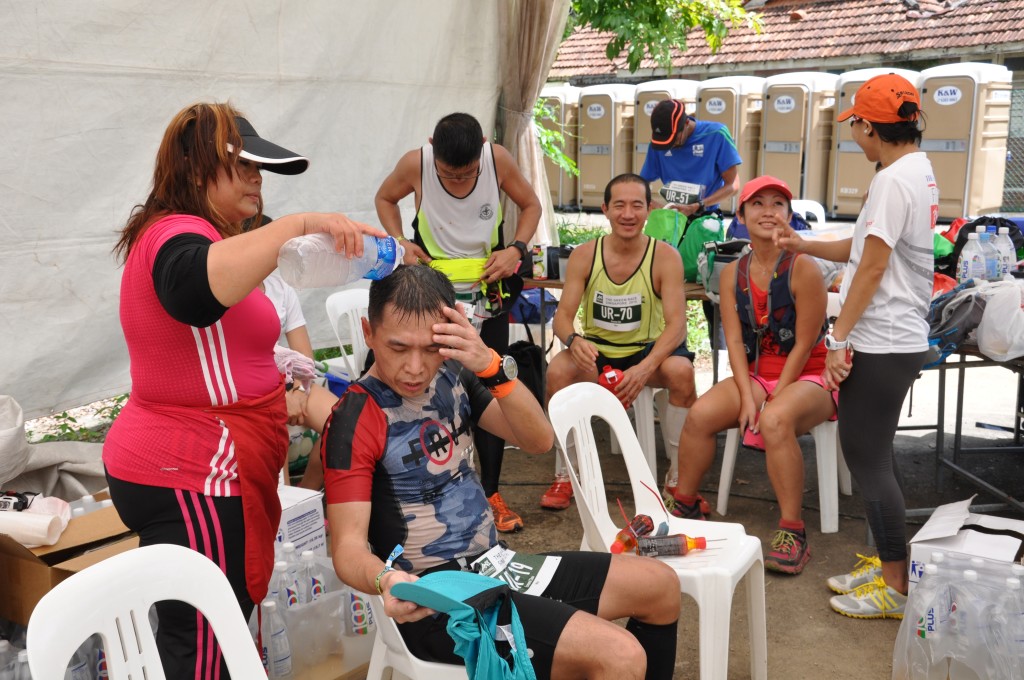
The doctor advises against ultra marathon running.
He added, “So we generally recommend people not to run ultra marathons or lift heavy weights. When you do, your heart muscles thicken and get bigger as a result of the constant scarring; it will eventually hit a point where the heart muscle becomes so big that it swells and becomes inefficient. That is where we have to then get the athlete to completely stop training and de-condition themselves to reduce the size of their heart back to normal.”
Monitoring of heart rate during training and races
Monitoring your heart rate during running races and training sessions is one way to prevent yourself from pushing too hard, according to Dr Nair. He said, “Everyone’s body is different. Some people have a lower resting heart rate than others. Athletes have a very low resting heart rate and when they run marathons, their heart rate is not even anywhere near their maximum heart rate that they are capable of. If you train regularly and you are quite fit, then you can run at about 60 per cent of your maximum heart rate and you should still feel quite comfortable.”
He added, “But the problem comes with weekend warriors who take part in races without much training. They will have rapid heart rates and their pulses will be fluctuating a lot, and that can be dangerous. So knowing your heart rate is good for trained athletes, but for weekend warriors who do not train properly, then basing your running pace on your heart rate, is not the best strategy to use when you are running.”
Instead, the doctor feels that ‘weekend warriors’ should focus on their breathing patterns and not their heart rate. They should be able to breathe steadily, and back down when their breathing pattern becomes erratic.
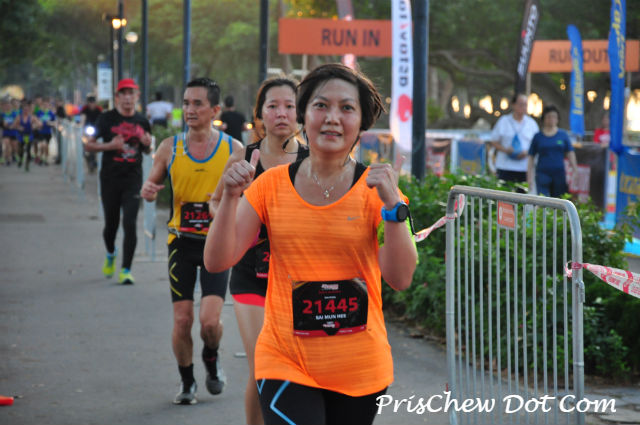
Monitor your heart rate during training sessions and races.
Elderly runners should take more precautions during running
Dr Nair also shared that for elderly runners, they should take more care and precautions in terms of pushing their bodies when they run marathons. He said, “I have a lot of patients who are above the age of 70, so I advise them not to run a full marathon but they do it anyway. It is against my medical advice, but since I cannot talk them out of it, I will walk them through and help them to manage the marathon.”
He added, “I would tell them not to push too hard and have an ECG scan done prior to running the marathon. It is 85 – 90 per cent accurate. Generally though, if you are older, I would say that you should not run, but runners can be quite stubborn sometimes though.”

Leave a Comment